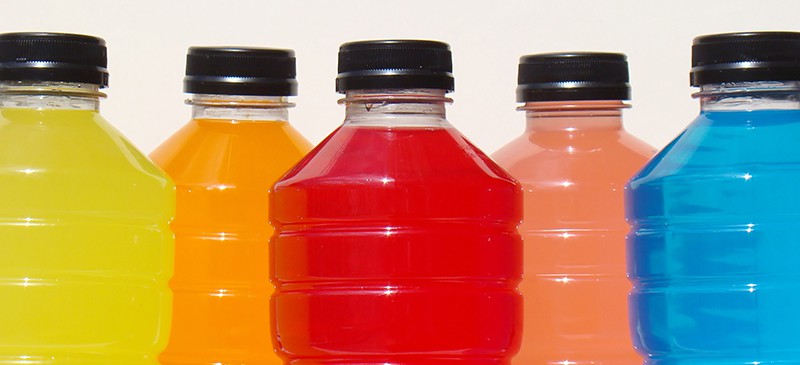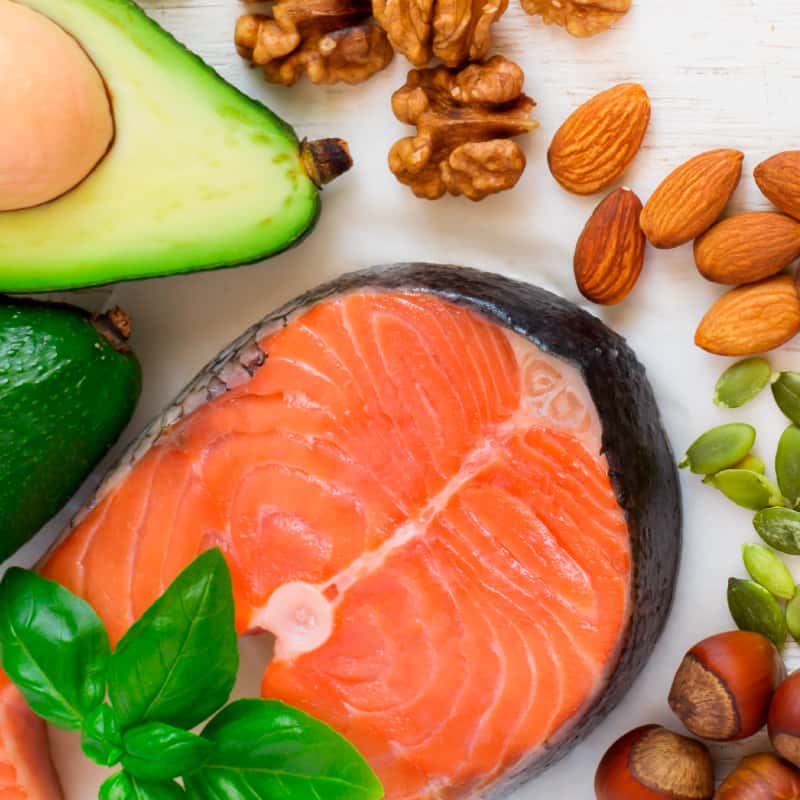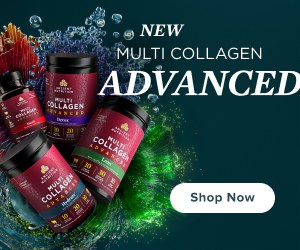This Dr. Axe content is medically reviewed or fact checked to ensure factually accurate information.
With strict editorial sourcing guidelines, we only link to academic research institutions, reputable media sites and, when research is available, medically peer-reviewed studies. Note that the numbers in parentheses (1, 2, etc.) are clickable links to these studies.
The information in our articles is NOT intended to replace a one-on-one relationship with a qualified health care professional and is not intended as medical advice.
This article is based on scientific evidence, written by experts and fact checked by our trained editorial staff. Note that the numbers in parentheses (1, 2, etc.) are clickable links to medically peer-reviewed studies.
Our team includes licensed nutritionists and dietitians, certified health education specialists, as well as certified strength and conditioning specialists, personal trainers and corrective exercise specialists. Our team aims to be not only thorough with its research, but also objective and unbiased.
The information in our articles is NOT intended to replace a one-on-one relationship with a qualified health care professional and is not intended as medical advice.
Are Sugar Alcohols Good or Bad for You?
November 4, 2019

With more people watching their sugar intake — due to factors including the growing incidence of diabetes, plus the popularity of low-carb diets such as the keto diet — use of sugar substitutes, including sugar alcohols, are on the rise.
What is sugar alcohol exactly, and is it bad or good for you? These substances are types of carbohydrates, but are neither sugar or alcohol. Most provide about a half to one-third less calories than regular sugar sources — like table sugar, honey or maple syrup, for example, because the body can’t fully break these substances down to absorb their calories.
As explained more below, sugar alcohols have both pros and cons. For example, they contribute less calories and sugar to your diet than typical refined sugar, but they’re also capable of causing digestive problems including diarrhea due to their laxative effects.
What Are Sugar Alcohols?
According to the Calorie Control Council, sugar alcohols (which are sometimes also called polyols) are defined as “low-digestible carbohydrates that can be used in foods as a low-calorie sugar alternative.” These sugar replacements have fewer calories than regular sugar, though they are different than artificial sweeteners and considered to be more “natural.”
Sugar alcohols — such as xylitol, erythritol and mannitol, among others — are commonly made in a lab. In small amounts, they also occur naturally in foods and plants like berries, seaweeds, pineapples, olives, asparagus and sweet potatoes.
Most have a similar sweet taste as sugar, are mostly noncaloric or very low in calories. They also do not raise blood sugar levels like regular sugar does.
What foods have sugar alcohol in them?
Foods and drinks that are labeled “sugar-free” are likely to have some type of sugar alcohol in them, possibly in addition to artificial sweeteners.
Some examples of foods and beverages that commonly contain sugar alcohols include:
- zero calorie and/or diet sodas and drinks
- sports and energy drinks
- sugar-free gums and mints
- candies (such as hard and soft candies)
- jams and jelly spreads
- chocolate products
- frostings
- dairy desserts (such as ice cream, other frozen desserts, and puddings)
- packaged grain-based desserts (such as cakes and cookies)
- nut butters
- powder/granulated sugar substitutes
- toothpastes and mouthwashes
- some medications and supplements, like cough syrup, lozenges, nasal sprays and some vitamins
The FDA defines added sugars as “sugars that are either added during the processing of foods, or are packaged as such,” but polyols are not considered added sources of sugars and, therefore, aren’t included in the added sugars line on food labels.
If a food contains these sugar replacements it will be listed on the label under Total Carbohydrate. Recent FDA regulation require specific polyols to be listed on food labels only if one type of polyol is used; when more than one type is added to the food/beverage, the general term “sugar alcohols” is used instead.
What is the difference between sugar and sugar alcohol?
Sugar alcohols are carbohydrates that have characteristics of both sugars and alcohol, according to Yale New Haven Hospital. In other words, part of their chemical structure resembles sugar and part is similar to alcohol, although they are different than both in important ways.
Research shows that polyols do share some physical similarities with sugar, but they don’t impact blood glucose levels as drastically. Sugar alcohols also contain less calories (1.5 to 3 calories per gram) than sugar (4 calories per gram).
They are also different than artificial sweeteners, which do not contain carbohydrates or calories. Artificial sweeteners won’t cause a rise in blood sugar, but sugar alcohols do have a small effect on blood glucose levels.
Does sugar alcohol have alcohol in it?
No; sugar alcohols are not the same thing as sugar free alcohol (or low calorie alcohols). That’s because sugar alcohols don’t contain ethanol (aka alcohol) like alcoholic beverages do.
Types
There are many types of sugar alcohols now used in commonly eaten foods. Some types include: xylitol, erythritol, sorbitol/glucitol, lactitol, isomalt, maltitol, mannitol, glycerol/glycerin, and hydrogenated starch hydrolysates (HSH).
While products like erythritol and xylitol are not considered “artificial sweeteners” themselves, they are often used in combination with artificial sweeteners to improve the taste of diet/light products.
Here’s a run down on the most popular types of sugar alcohols you’ll find in various foods:
- Erythritol — This type is now one of the most popular “natural,” zero-calorie sweeteners used in packaged foods and beverages. There are zero calories and zero carbs in erythritol. It contains about 60 percent to 80 percent of the sweetness of table sugar. You’ll find this type in products like gum, candies, jellies, jams, chocolate bars, yogurt and low calorie beverages.
- Xylitol — This is a crystalline alcohol and a derivative of xylose, which is a type of aldose sugar that is not digestible by the bacteria in our digestive systems. It’s usually produced in a lab from xylose but is also naturally derived from the bark of the birch tree. Unlike erythritol, xylitol is not completely calorie-free; it’s about 40 percent lower in calories than regular table sugar, providing about 10 calories per teaspoon (compared to about 16 per teaspoon of sugar).
- Mannitol — Mannitol has 50 to 70 percent of the sweet taste of sugar. Consumption has been linked with bloating and diarrhea in some people.
- Sorbitol — Sorbitol tastes less sweet than sugar, providing about 50 percent of the relative sweetness. This means it’s often used in larger amounts, part of the reason why it has the tendency to cause diarrhea.
Benefits
1. Low Glycemic Index Score
Sugar alcohols are low in carbs and converted to glucose more slowly than regular sugar, which means they have a lower glycemic index score. After you consume them they require little or no release of the hormone insulin, which is used to metabolize glucose and to maintain normal blood sugar levels.
Is sugar alcohol safe for diabetics? Yes, and it’s often encouraged in place of regular sugars. For people with diabetes, consuming products made with these sugar subs can help to both reduce calorie intake and minimize spikes in blood sugar.
That being said, a food that contains sugar replacements may still be high in carbohydrates, not to mention other additives, so it shouldn’t be thought of as a “free food” in terms of calories.
2. Keto-Friendly/Low-Carb Way to Sweeten Recipes
Sugar replacements are now used in many food/beverage products developed for carbohydrate-controlled eating plans, including the keto diet.
Here’s another benefit to using these products: sugar alcohols in food and drinks do more than add a sweet taste without contributing calories; they also add bulk and texture, help retain moisture, and prevent browning of various food products.
Some people report feeling fuller after consuming foods with polyols, which means they may help control your appetite and cravings for sweets, at least temporarily.
Related: Keto Sweeteners: What Are the Best vs. Worst?
3. Better for Dental Health Than Regular Sugar
Because they aren’t metabolized and converted to acids by bacteria in the mouth the same way that sugar is, sugar alcohols are believed to be healthier for your gums and teeth.
Research suggests they may potentially contribute less to dental cavities and tooth decay, which is why dentists recommend their consumption in place of sugary products (like candies, regular gum, etc.).
In fact, polyols are used in dental and pharmaceutical products including toothpastes, mouthwashes, cough syrups and throat lozenges in order to help keep calories and sugar content low.
Risks and Side Effects
Are sugar alcohols bad for you? Some people have concerns with consumption of these sugar replacements for reasons including:
- That they are often made from GMO substances, including GMO cornstarch and corn syrup.
- They can be hard to digest and cause digestive symptoms. They may even have laxative effects in some people. They pass through the small intestine and are fermented by bacteria in the large intestine. Some can linger in the intestines for a long time, causing discomfort.
- They don’t offer some of the same health benefits as other natural sweeteners, such as stevia (or raw honey or molasses if someone doesn’t mind consuming real sugar).
While they are considered generally safe to consume, when ingested in large amounts sugar alcohols can can potentially cause negative reactions, especially digestive upset. Some of the most common sugar alcohol side effects include: nausea/stomach upset, diarrhea, gas and bloating.
Experts tell us that the best way to avoid side effects is to stick to a low daily limit. According to the American Diabetes Association, sugar alcohols are safe and acceptable in a moderate amount but should not be eaten in excess quantities. The Academy of Nutrition & Dietetics advises against consuming more than 50 grams/day of sorbitol or more than 20 grams/day of mannitol to limit chances of experiencing diarrhea.
The International Food Information Council also points out that “If you eat a product containing large amounts of polyols for breakfast on an empty stomach, you will probably experience a different effect than consuming the same product later in the day with a fuller stomach.”
Conclusion
- Sugar alcohols — including erythritol, sorbitol, xylitol and mannitol — are sugar substitutes that have fewer calories than regular sugar sources.
- What’s the difference between sugar and sugar alcohol? Sugar alcohols are carbohydrates that have characteristics of both sugars and alcohol, but they are technically neither. They don’t contain alcohol and don’t impact blood sugar levels like regular sugar does.
- Sugar alcohols are popular among people with diabetes and those on low carb diets. They contain less calories than regular sugar and are also considered safer for dental health.
- Why might sugar alcohol be bad for you? Some people will experience sugar alcohol side effects like diarrhea and gas, especially if they consume too much. In excess they can have laxative effects, which means limiting your intake is a good idea.







